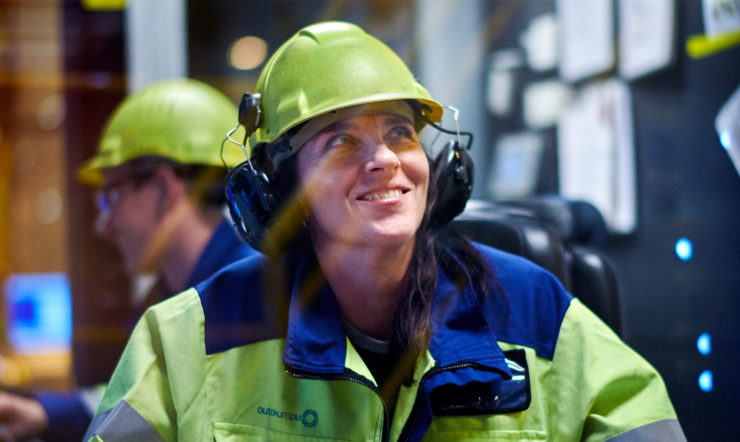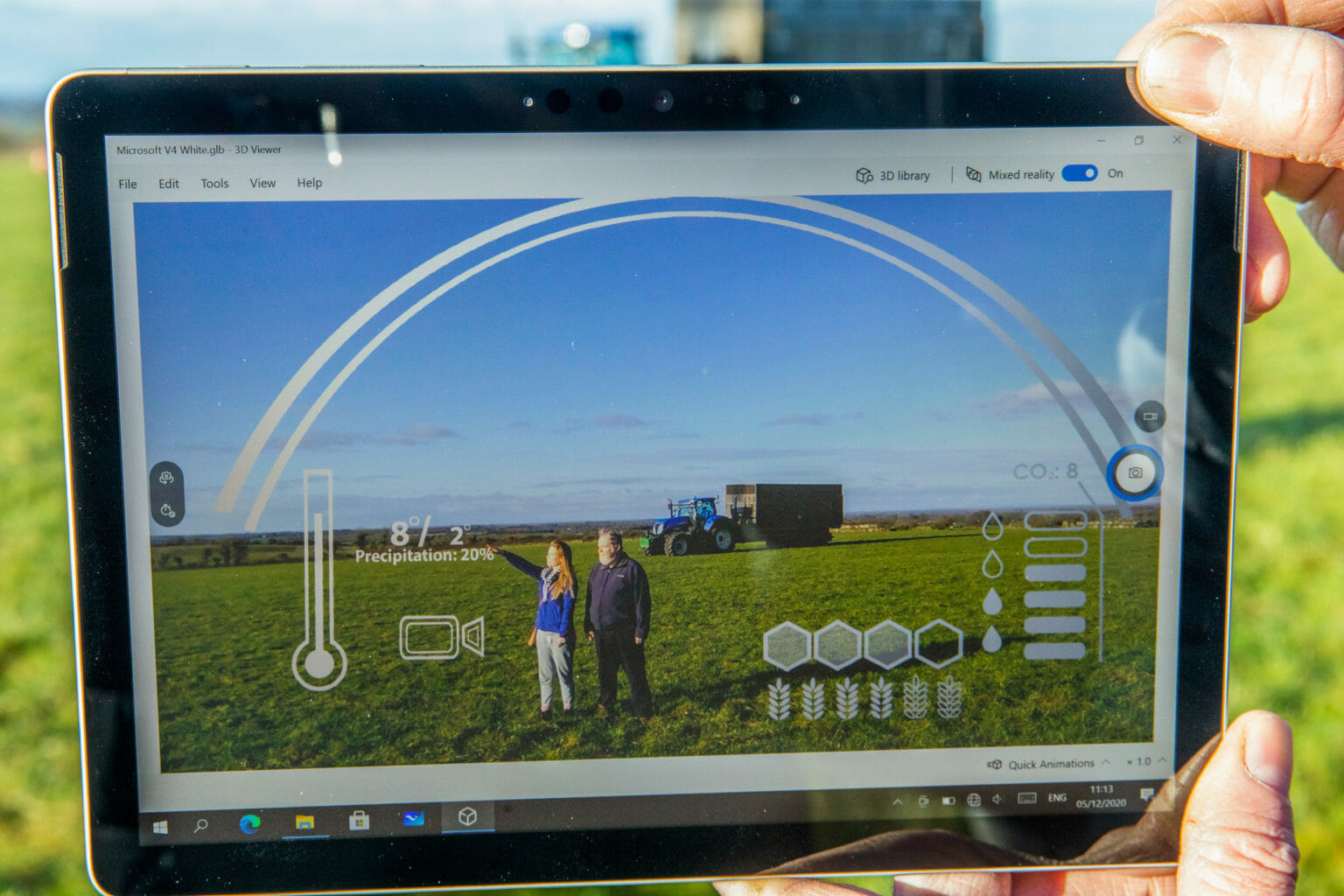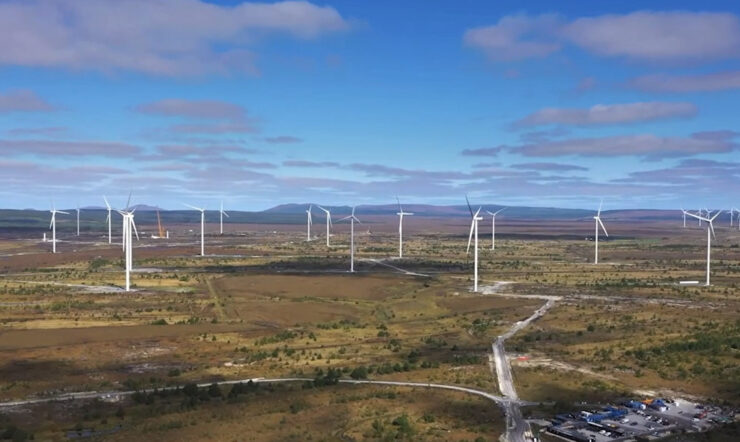Terrain AI, Accelerating our Understanding of Carbon Reduction
Microsoft Ireland and SFI (Science Foundation Ireland) today announced the co-funding of a €5m climate change project. The project, called Terrain-AI, will focus on improving our understanding of the impact of human activity on land use and how it relates to climate change. The research will initially focus on test sites in Ireland, with the ultimate aim of reducing global carbon levels by sharing the insights and models developed with other countries. Pictured at Paddy O’Sullivan’s farm in Tullaghmedan, Drumree, Co Meath through a Microsoft Surface device is an illustration of the different data measurements that IoT devices can capture on land use including temperature, precipitation and growth levels.
People and organisations in Ireland and across the world are facing unprecedented challenges from climate change. Pollution, loss of biodiversity and rising temperatures are some of the many difficulties we will need to overcome in the coming decade.
But together, we can work to create a safer, healthier, and more sustainable future for our planet.
That’s why today we announced the co-funding of a new €5m climate change research project with SFI (Science Foundation Ireland). The project, called Terrain-AI, will focus on improving our understanding of the impact of human activity on land use and how it relates to climate change and carbon output.
Connected to our mission at Microsoft to empower every person and organisation to achieve more is our commitment to accelerating global progress towards a more sustainable future.
Microsoft has been carbon neutral across the world since 2012 and as a company is committed to achieving carbon negative status by 2030. Over recent months, we’ve been adapting how we work with our recently opened Engineering Hub in Leopardstown built with the support of a smart building system that will help to make sustainability a way of life at Microsoft.
But even more importantly, we recognise the need to partner with others to help address the impact of climate change. By doing so, we want to promote sustainable development and low-carbon business practices through the use of cloud-enabled technologies.
We’re living out this mission through the development of a number of strategic partnerships over recent years. Our collaboration with SSE Airtricity has resulted in the installation of internet-connected solar panels in primary and secondary schools across the country to help reduce their carbon footprint. We’ve partnered with Teagasc to roll-out our Airband project that enables students at Ballyhaise Community College to leverage a range of technologies, including AI and data analytics, that will support more sustainable farming and agricultural practices within rural communities in the years to come.
It’s through these partnerships we can make a real difference and demonstrate the role of technology and power of data in making a real impact on climate change.
Today, we embark on a new project which over two years will capture data from a variety of land types to help inform future planning and introduction of more effective policies to reduce carbon emissions.

Leveraging the latest multimodal sensing technologies, IoT devices and the Microsoft Azure Cloud, the project will build artificial intelligence (AI) models that can inform more effective and sustainable management practices, leading to significant carbon reduction. The project led by Maynooth University will also be conducted in collaboration with Teagasc, Trinity College Dublin, University College Dublin, Dublin City University, and University of Limerick.
Data will be captured from satellites, airborne platforms, as well as in-field instruments, from 14 test sites strategically located across Ireland. While research to date has in this area focused on individual land use types, or activities relating to a specific sector this project will capture a broad representation of land usage. To improve our understanding of the interactions between the land and human activities that lead to carbon emissions, the test sites will include all types of land from grasslands, croplands, forestry, wetlands, peatlands, to urban areas.
While the project is capturing data from land types in Ireland, the intention is to design a cloud platform that can use the insights from the Irish findings and be shared with other countries to help them explore land usage and carbon reduction in their own jurisdictions.
If the events of 2020 have demonstrated anything, it’s that the best way to tackle a common challenge is for organisations across the public and private sectors to come together and harness the power of technology to come up with solutions once thought impossible. These values are readily apparent in the Terrain-AI project, which sees academia and industry working hand-in-hand towards a more sustainable world.








